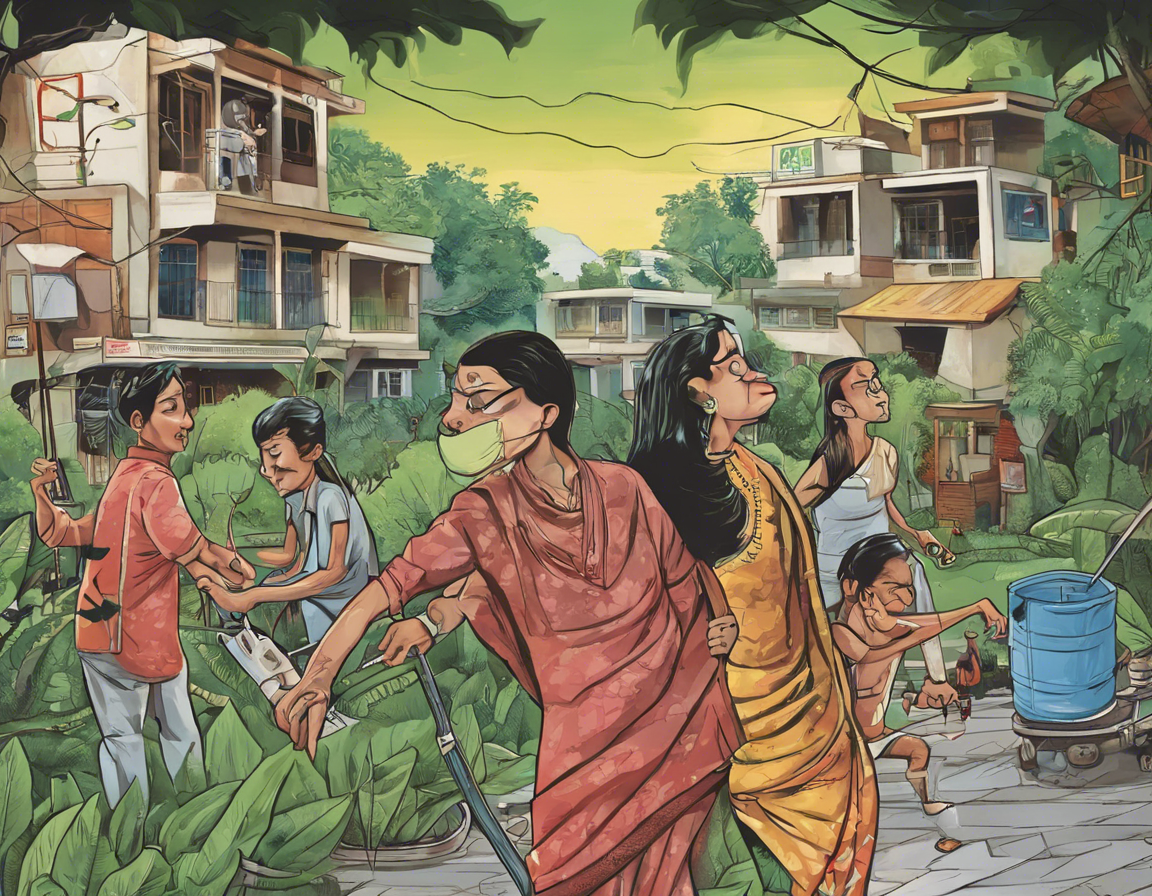Dengue fever is a viral infection that is transmitted through the bite of mosquitoes, primarily the Aedes aegypti mosquito. It is prevalent in tropical and subtropical regions around the world, with the World Health Organization estimating that around 50-100 million cases occur annually.
Symptoms of Dengue Fever
Initial Symptoms:
1. Sudden Onset: Dengue fever typically begins suddenly with a high fever, often reaching up to 104°F (40°C). The onset of symptoms is usually 4-10 days after being bitten by an infected mosquito.
2. Severe Headache: Intense headaches are common with dengue fever and can be debilitating.
3. Pain Behind the Eyes: Many people experience severe pain behind their eyes, particularly when moving them.
4. Muscle and Joint Pain: Aching muscles and joints are often reported by individuals with dengue fever, giving it the alternative name “breakbone fever.”
5. Nausea and Vomiting: Gastrointestinal symptoms like nausea, vomiting, and abdominal pain frequently occur.
6. Skin Rash: A characteristic rash may develop a few days after the onset of fever, appearing as small red spots. This rash usually starts on the arms, legs, and face.
7. Mild Bleeding: Some individuals may experience mild bleeding, such as nosebleeds, bleeding gums, or easy bruising.
Warning Signs:
In severe cases, dengue fever can progress to dengue hemorrhagic fever or dengue shock syndrome. It is crucial to be aware of warning signs that indicate a worsening condition and the need for immediate medical attention:
1. Severe Abdominal Pain: Persistent abdominal pain or tenderness can be a sign of a more severe form of dengue fever.
2. Vomiting Persistent: Continuous vomiting can lead to dehydration, requiring medical intervention.
3. Bleeding: Severe bleeding, such as blood in vomit, urine, or stool, is a critical warning sign.
4. Fatigue or Restlessness: Extreme tiredness or restlessness can be a sign of progressing illness.
5. Difficulty Breathing: Rapid breathing or difficulty breathing is a severe symptom that necessitates urgent care.
6. Pale, Cold, or Clammy Skin: Changes in skin color or texture can indicate a worsening condition.
FAQs on Dengue Fever
1. Is there a vaccine for dengue fever?
Currently, there is a vaccine available for dengue fever called Dengvaxia. However, it is only recommended for individuals who have had a prior dengue infection.
2. How is dengue fever diagnosed?
Dengue fever is diagnosed through a blood test that checks for the presence of the dengue virus or antibodies produced by the immune system in response to the virus.
3. Can dengue fever be fatal?
While most cases of dengue fever resolve on their own with appropriate medical care, severe dengue can lead to complications and be life-threatening if not treated promptly.
4. How can dengue fever be prevented?
Preventive measures for dengue fever include eliminating mosquito breeding sites, using mosquito repellent, wearing long sleeves and pants, and using mosquito nets.
5. Is dengue fever contagious from person to person?
No, dengue fever is not directly contagious from person to person. It is spread through the bite of infected mosquitoes.
In conclusion, being able to recognize the symptoms and warning signs of dengue fever is crucial for prompt diagnosis and treatment. If you suspect that you or someone you know has dengue fever, seek medical attention immediately, especially if warning signs are present. Prevention is key in controlling the spread of the disease, so following good mosquito control practices is essential, particularly in areas where dengue fever is endemic. Stay informed, stay vigilant, and stay safe.
